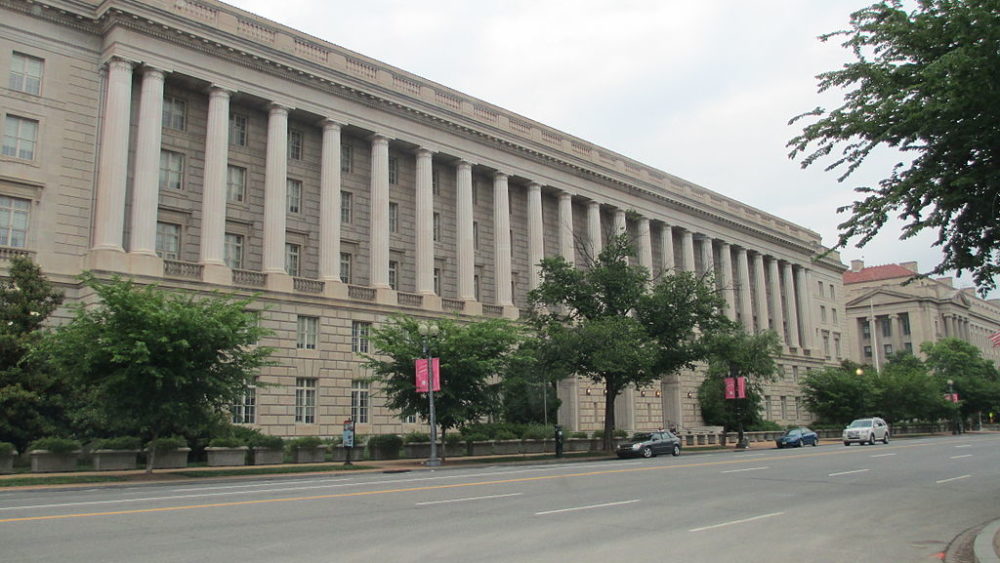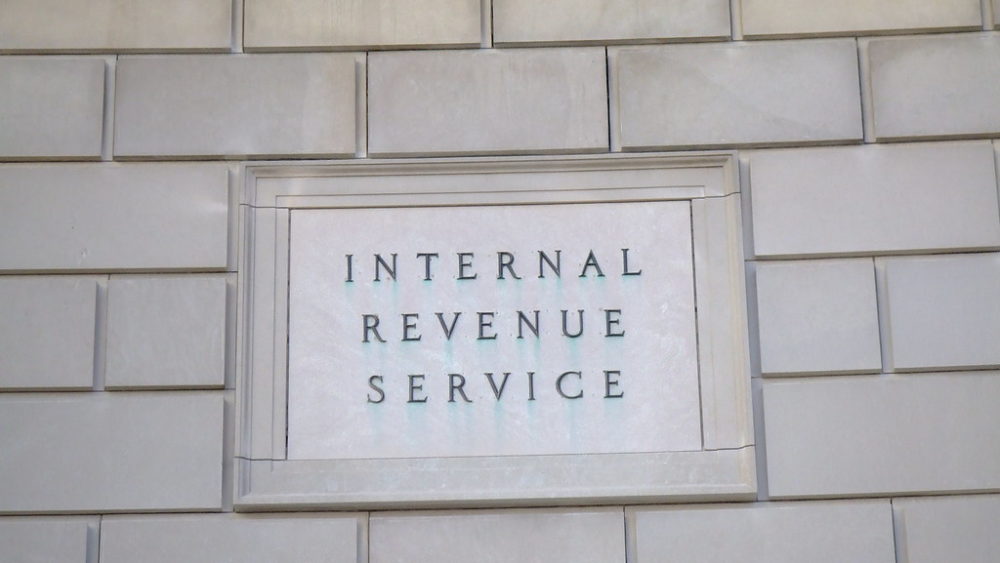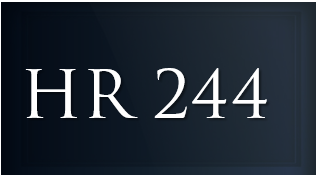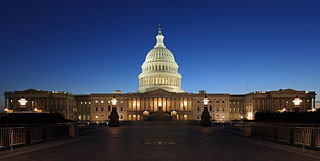
Home of the Internal Revenue Service - by Joshua Doubek
On May 28, new Internal Revenue Service (IRS) regulations allowing certain tax-exempt organizations to refrain from reporting the names and addresses of contributors on their annual reports to the IRS will take effect and be published in the U.S. Federal […]
On May 28, new Internal Revenue Service (IRS) regulations allowing certain tax-exempt organizations to refrain from reporting the names and addresses of contributors on their annual reports to the IRS will take effect and be published in the U.S. Federal Register.
This exemption from reporting applies to tax-exempt organizations generally not receiving tax-deductible contributions, such as labor unions, volunteer fire departments, issue-advocacy groups, local chambers of commerce, veterans’ groups, and community service clubs. These organizations are still required to continue to collect and keep the donor information and to make it available to the IRS upon its request. This change does not affect the information required to be reported by charities primarily receiving tax-deductible contributions, such as 501(c)(3) organizations, certain nonexempt private foundations, or 527 political organizations.
The Treasury Department and IRS had given three primary reasons for the change: the IRS makes no systematic use of this information collected by these organizations; the policy reduces the risk of inadvertent disclosure or misuse of confidential information; and the policy saves both private and government resources.
Previously, the IRS had issued a guidance to this effect, but on July 30, 2019, the IRS guidance limiting these disclosure requirements was set aside by a federal judge. In Bullock v. IRS, the U.S. District Court District of Montana (Great Falls) found the IRS violated the Administrative Procedure Act by not providing notice and allowing a public comment period before the guidance was issued. It predicated this decision by finding the guidance was a legislative rule. Subsequently, on September 6, the IRS issued a notice of a proposed rulemaking and accepted public comment.
September 11, 2019 •
IRS Moves Again to Exempt Certain Tax-Exempt Organizations From Reporting Contributor Info

Photo Credit: saturnism
On September 6, the Internal Revenue Service (IRS) issued a notice of a proposed rulemaking for allowing certain tax-exempt organizations to no longer be required to report the names and addresses of contributors on their annual reports. Previously, the IRS […]
On September 6, the Internal Revenue Service (IRS) issued a notice of a proposed rulemaking for allowing certain tax-exempt organizations to no longer be required to report the names and addresses of contributors on their annual reports.
Previously, the IRS had issued a guidance to this effect, but on July 30, the IRS guidance limiting these disclosure requirements was set aside by a federal judge.
In Bullock v. IRS, the U.S. District Court District of Montana (Great Falls) found the IRS violated the Administrative Procedure Act by not providing notice and allowing a public comment period before the guidance was issued. It predicated this decision by finding the guidance was a legislative rule.
On July 16, 2018, the U.S. Treasury Department and the IRS had announced certain tax-exempt organizations would no longer be required to report the names and addresses of contributors on their annual reports. This exemption from reporting applies to tax-exempt organizations generally not receiving tax-deductible contributions, such as labor unions, volunteer fire departments, issue-advocacy groups, local chambers of commerce, veterans’ groups, and community service clubs, according to the department’s press release.
These organizations are still required to continue to collect and keep the donor information and to make it available to the IRS upon its request.
This change did not affect the information required to be reported by charities primarily receiving tax-deductible contributions, such as 501(c)(3) organizations, certain nonexempt private foundations, or 527 political organizations. The Treasury Department and IRS had given three primary reasons for the change:
-
- The IRS makes no systematic use of this information collected by these organizations
- The policy reduces the risk of inadvertent disclosure or misuse of confidential information
- The policy saves both private and government resources
Comments on the proposed rule will be accepted for 90 days after the notice’s publication in the Federal Register.
On July 16, the U.S. Treasury Department and the IRS announced certain tax-exempt organizations will no longer be required to report the names and addresses of contributors on their annual reports. This exemption from reporting will apply to tax-exempt organizations […]
 On July 16, the U.S. Treasury Department and the IRS announced certain tax-exempt organizations will no longer be required to report the names and addresses of contributors on their annual reports.
On July 16, the U.S. Treasury Department and the IRS announced certain tax-exempt organizations will no longer be required to report the names and addresses of contributors on their annual reports.
This exemption from reporting will apply to tax-exempt organizations generally not receiving tax-deductible contributions, such as labor unions, volunteer fire departments, issue-advocacy groups, local chambers of commerce, veterans’ groups, and community service clubs, according to the department’s press release.
These organizations are still required to continue to collect and keep the donor information and to make it available to the IRS upon its request.
This change does not affect the information required to be reported by charities primarily receiving tax-deductible contributions, such as 501(c)(3) organizations, certain nonexempt private foundations, or 527 political organizations.
The Treasury Department and IRS gave three primary reasons for the change: the IRS makes no systematic use of this information collected by these organizations; the new policy will reduce the risk of inadvertent disclosure or misuse of confidential information; and the new policy saves both private and government resources.
The revised reporting requirements apply to information on returns for taxable years ending on or after December 31, 2018 and becoming due on or after May 15, 2019.
May 8, 2017 •
US Spending Bill Has Campaign Finance Provisions
Among the amendments in the 2017 Consolidated Appropriations Act that passed into law on May 5 are two provisions affecting campaign financing. House Resolution 244 explicitly prohibits the Internal Revenue Service from making new rules concerning the political speech or […]
 Among the amendments in the 2017 Consolidated Appropriations Act that passed into law on May 5 are two provisions affecting campaign financing.
Among the amendments in the 2017 Consolidated Appropriations Act that passed into law on May 5 are two provisions affecting campaign financing.
House Resolution 244 explicitly prohibits the Internal Revenue Service from making new rules concerning the political speech or activity of 501(c)(4) organizations. The legislation also prohibits the Securities and Exchange Commission from finalizing, issuing, or implementing any rule, regulation, or order regarding the disclosure of political contributions, contributions to tax exempt organizations, or dues paid to trade associations.
The 708 page omnibus spending bill, passed by Congress on May 4 and signed by the president on May 5, funds the U.S. government through September 30.
July 26, 2016 •
Tuesday Lobbying and Campaign Finance News Update
Campaign Finance “IRS Gives Opposite Rulings to Convention Committees” by Kenneth Doyle for Bloomberg BNA California: “Campaign Cash: A Journey Through the Cal-Access Labyrinth” by Cosmo Garvin for Capitol Weekly Connecticut: “U.S. Attorney Opens Probe of Malloy’s 2014 Campaign Fundraising” by […]

Campaign Finance
“IRS Gives Opposite Rulings to Convention Committees” by Kenneth Doyle for Bloomberg BNA
California: “Campaign Cash: A Journey Through the Cal-Access Labyrinth” by Cosmo Garvin for Capitol Weekly
Connecticut: “U.S. Attorney Opens Probe of Malloy’s 2014 Campaign Fundraising” by Keith Phaneuf and Mark Pazniokas for CT Mirror
Ethics
“As Pick for No. 2, Tim Kaine Sees Gifts Come Under Scrutiny” by Eric Lipton and Steve Eder for New York Times
Massachusetts: “Supreme Court’s Corruption Decision Could Affect Mass. Cases” by Shelley Murphy for Boston Globe
New York: “N.Y. Lawmakers Seek to Strengthen State Bribery Law” by Matthew Hamilton for Albany Times Union
Elections
“DNC Turmoil Confirms Warnings: Hackers Are Targeting Campaigns” by Eric Geller for Politico
Louisiana: “Former KKK Leader David Duke, Citing Trump, Announces Senate Bid” by Elise Viebeck for Washington Post
December 23, 2015 •
2016 Omnibus Appropriations Bill’s Campaign Finance Changes
Among the riders in the federal 2016 Omnibus Appropriations bill passed into law on December 18, 2015, were two provisions affecting campaign finance. Congress explicitly prohibited the Internal Revenue Service from making new rules concerning the political speech or activity […]
 Among the riders in the federal 2016 Omnibus Appropriations bill passed into law on December 18, 2015, were two provisions affecting campaign finance. Congress explicitly prohibited the Internal Revenue Service from making new rules concerning the political speech or activity of 501(c)(4) organizations. The legislation also prohibits the Securities and Exchange Commission from issuing regulations requiring corporations to disclose their political activity to their shareholders.
Among the riders in the federal 2016 Omnibus Appropriations bill passed into law on December 18, 2015, were two provisions affecting campaign finance. Congress explicitly prohibited the Internal Revenue Service from making new rules concerning the political speech or activity of 501(c)(4) organizations. The legislation also prohibits the Securities and Exchange Commission from issuing regulations requiring corporations to disclose their political activity to their shareholders.
The Senate’s version of the Financial Services and General Government Appropriations Act, 2016, Senate Bill 1910, contained language altering the law regarding coordination between candidates and political parties. However, opposition from both parties prevented this rider making it in the final passed bill. The final bill also did not include a rider from House Resolution 2995, the House’s version of the bill, which would have barred the use of funds to recommend or require any entity submitting an offer for a federal contract to disclose specified political contributions as a condition of submitting the offer.
Photo of the United States Capitol by Martin Falbisoner on Wikimedia Commons.
Applications for tax-exempt status of charities filing under section 501(c)(3) of the tax code are now quicker and easier for as many as 70 percent of all applicants, says the IRS. According to an IRS press release, organizations with gross […]
 Applications for tax-exempt status of charities filing under section 501(c)(3) of the tax code are now quicker and easier for as many as 70 percent of all applicants, says the IRS.
Applications for tax-exempt status of charities filing under section 501(c)(3) of the tax code are now quicker and easier for as many as 70 percent of all applicants, says the IRS.
According to an IRS press release, organizations with gross receipts of $50,000 or less and assets of $250,000 or less are eligible to use a new three-page application form. The standard form is 26 pages.
IRS Commissioner John Koskinen said, “It didn’t matter if you were a small soccer or gardening club or a major research organization. [The standard form] process created needlessly long delays for groups, which didn’t help the groups, the taxpaying public or the IRS.” According to the IRS, the new shorter form will “speed the approval process for smaller groups and free up resources to review applications from larger, more complex organizations while reducing the application backlog.”
There is a concern groups not having true charitable purposes may use the tax-exempt status to make political contributions without having to reveal the original source of the funds. In a TIME magazine article published July 13, Koskinen dismissed the idea that “if someone has been forced to do more paperwork they’re going to be less nefarious.”
May 14, 2013 •
Tuesday Lobbying and Campaign Finance News
Keep up with the latest government relations news with these articles:
 Lobbying
Lobbying
“Lobbying and Contributions by High Frequency Traders” by Kent Cooper in Roll Call.
“K Street worries over spread of IRS scandal amid push for tax reform” by Erik Wasson and Peter Schroeder in The Hill.
New York: “When Campaign Aides Are Lobbyists, Questions Mount” by Ross Barkan in City Limits.
Tennessee: “Tennessee Ethics Commission to meet on Ingram lobbying case” by Andy Sher in the Times Free Press.
Campaign Finance
“SEC nears decision on requiring businesses to disclose donations” by Ben Goad in The Hill.
“States’ Seek to Limit Undisclosed Political Donations” by Matea Gold, Chris Megerian and Mark Z. Barabak in Governing.
“IRS mess adds to campaign finance free-for-all” by Byron Tau, Tarini Parti and Kelsey Snell in Politico.
“Pelosi Injects Campaign Finance Debate Into IRS Scandal” by Emma Dumain in Roll Call.
Nebraska: “Nebraska Attorney General fined $19,000 by FEC” by The Associated Press in the Beatrice Daily Sun.
Texas: “House set to send disclosure bill to Gov. Perry” by Will Weissert (Associated Press) in the Houston Chronicle.
Vermont: “Vt. lawmakers drop campaign finance reform” by The Associated Press in New England Cable News.
From the State Legislatures
Arizona: “Lawmakers to see cut in daily pay this week” by The Associated Press in the Arizona Capitol Times.
Utah: “Utah Lawmakers Back to Capitol to Prep for Next Year” by The Associated Press in KUTV News.
Washington: “Washington lawmakers return to Capitol for special session” by The Associated Press in The Oregonian.
Washington: “Washington Gov. Inslee narrows priorities for legislative special session” by The Associated in The Oregonian.
Elections
“Which States Saw Voter Turnout Jump, Decline Most Last Year?” by Mike Maciag in Governing.
Social Media
“Social Advocacy & Politics: A Virtual Political Debate Via Twitter” by Alan Rosenblatt in Social Media Today.
July 11, 2011 •
IRS Stops Investigating 501(c)(4) Organizations
Future Action Possible
 The Internal Revenue Service will not pursue its proposed check on the applicability of gift tax contributions to 501(c)(4) organizations. Acknowledging it has limited history or guidance on this issue, the IRS announced it “will not use resources to pursue examinations on this issue. Any future action we take will be prospective and after notice to the public.”
The Internal Revenue Service will not pursue its proposed check on the applicability of gift tax contributions to 501(c)(4) organizations. Acknowledging it has limited history or guidance on this issue, the IRS announced it “will not use resources to pursue examinations on this issue. Any future action we take will be prospective and after notice to the public.”
In recent years, 501(c)(4) organizations, which allow for limited disclosure requirements, have taken a more prominent role in the campaign finance landscape.
State and Federal Communications, Inc. provides research and consulting services for government relations professionals on lobbying laws, procurement lobbying laws, political contribution laws in the United States and Canada. Learn more by visiting stateandfed.com.

